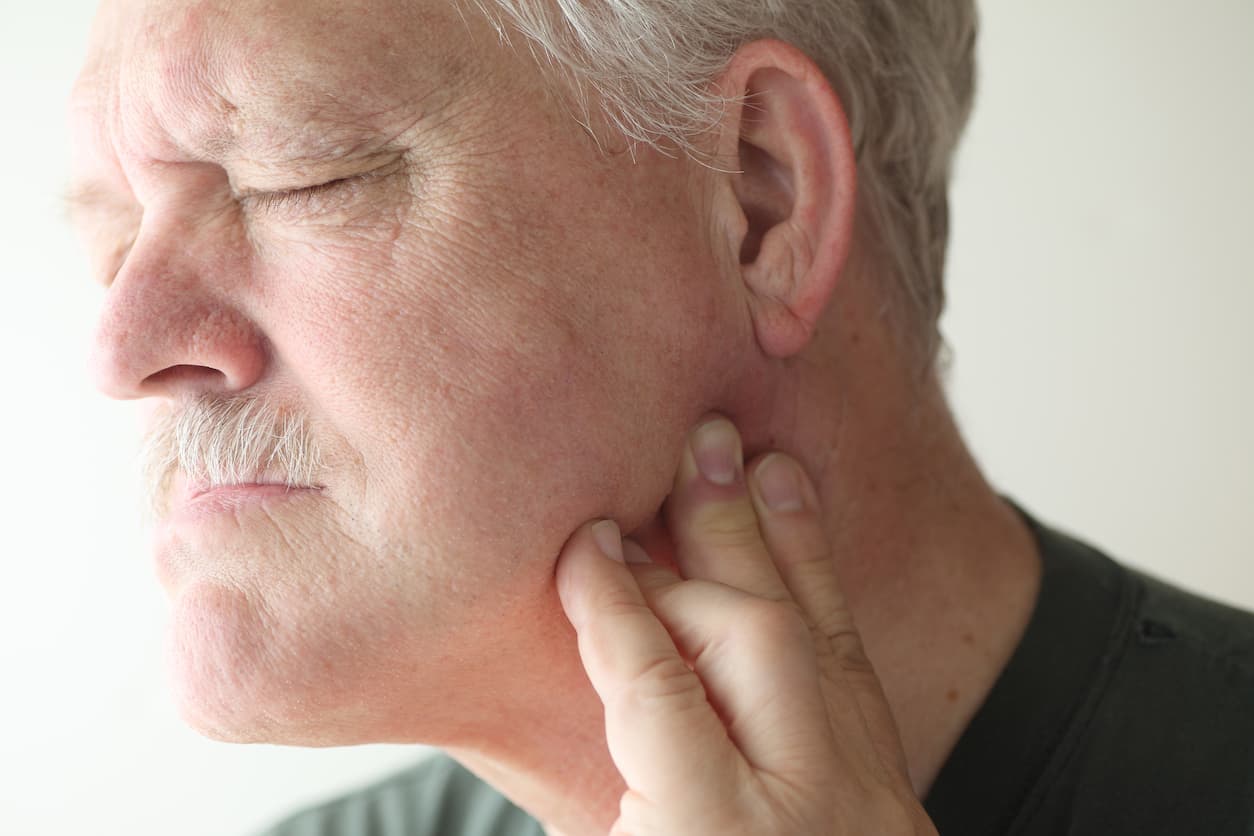Jaw pain is a surprisingly common issue that many people experience, but when the pain is localized to one side of the jaw, it can be particularly concerning. This discomfort may affect your ability to eat, speak, or even relax your jaw without noticing tension. While there are several potential reasons for one-sided jaw pain, understanding the underlying causes can help you determine the most effective treatments and prevention strategies. Whether it’s related to temporomandibular joint (TMJ) disorders, dental issues, or stress-related factors like teeth grinding, finding relief is possible with the right approach.
Common Causes of One-Sided Jaw Pain
Temporomandibular Joint Disorder (TMJ/TMD)
One of the most frequent causes of jaw pain, particularly on one side, is TMJ disorder. The temporomandibular joint connects your jaw to your skull, allowing you to open and close your mouth. TMJ disorders can develop due to misalignment, arthritis, injury, or overuse, resulting in pain, popping sounds, and restricted movement. Symptoms may intensify when chewing, speaking, or yawning, making daily activities uncomfortable. If you’re experiencing these signs, TMJ may be the root cause of your one-sided jaw pain.
Bruxism (Teeth Grinding)
Bruxism, or teeth grinding, is another common contributor to jaw discomfort. Often occurring during sleep, bruxism places excess strain on the jaw muscles and joints, which can lead to persistent pain on one side. Stress is a key factor in bruxism, so individuals with high stress levels may be more likely to grind their teeth unconsciously. The resulting muscle fatigue and joint tension can intensify jaw pain, especially if the grinding is more severe on one side.
Sinusitis and Jaw Pain
Jaw pain isn’t always directly related to the muscles or joints in your jaw; sinus infections and allergies can also cause discomfort. When the sinuses become inflamed due to an infection or allergic reaction, the pressure can radiate to the jaw area, causing a dull, aching pain that may feel like it’s coming from one side of your jaw. If you have a history of sinusitis or experience seasonal allergies, this could be the underlying cause of your jaw pain.
Dental Problems
Dental health plays a significant role in jaw comfort. Cavities, gum disease, and dental abscesses can lead to one-sided jaw pain, particularly when the issue affects the teeth on that side. In more severe cases, impacted wisdom teeth can also cause significant pain in the jaw. If the pain is sharp or throbbing and localized near a tooth, seeing a dentist is crucial to rule out dental infections or other oral health concerns.
Diagnosing Jaw Pain: When to See a Doctor
If your jaw pain persists for more than a few days or is accompanied by swelling, clicking sounds, or difficulty opening your mouth, it’s essential to seek professional evaluation. A physical therapist or dentist can assess the cause of your jaw pain and recommend appropriate treatments. At Simply Physio in Knoxville, TN, we specialize in diagnosing and treating musculoskeletal issues, including jaw pain. An early diagnosis can prevent the condition from worsening and help you find relief faster.
Treatment Options for One-Sided Jaw Pain
Physical Therapy for TMJ
Physical therapy is an effective treatment option for TMJ disorders, helping to alleviate tension in the jaw muscles and improve overall function. At Simply Physio, our therapists develop personalized treatment plans to address TMJ pain through targeted exercises, manual therapy, and other specialized techniques. By focusing on the root cause of your jaw pain, physical therapy can reduce discomfort and prevent future flare-ups.
Stress Management and Relaxation Techniques
Since stress is often a significant factor in conditions like bruxism, learning how to manage stress can be key to reducing jaw pain. Relaxation techniques such as meditation, deep breathing exercises, and mindfulness can help you avoid clenching your jaw, which may lead to one-sided pain. Combining stress management with physical therapy can create a more holistic approach to treating jaw issues.
Medications and Dental Care
For some, over-the-counter medications like anti-inflammatories or muscle relaxants can provide temporary relief from jaw pain. However, it’s important to also address any dental issues that could be contributing to the problem. A dental professional may recommend treatments such as a mouthguard for bruxism or restorative dental care to fix cavities or abscesses, ultimately relieving the pressure on your jaw.
The Role of Posture in Jaw Pain
It might come as a surprise, but your posture could also be affecting your jaw health. Poor posture, particularly when sitting or working at a desk, can misalign the neck and head, placing additional strain on the jaw muscles. If you frequently find yourself slouching or craning your neck forward, this could be contributing to your one-sided jaw pain. Addressing posture issues through exercises or ergonomic adjustments may reduce your discomfort.
Jaw Pain Prevention Tips
Lifestyle Changes
Preventing jaw pain often starts with making small changes in your daily habits. Avoiding excessive gum chewing, eating softer foods when your jaw feels tight, and practicing good posture can go a long way in reducing jaw discomfort. Incorporating regular jaw stretches and exercises, as recommended by your physical therapist, can also help maintain the health of your jaw muscles and joints.
Regular Physical Therapy Check-Ups
To maintain optimal jaw health, regular physical therapy check-ups are a good idea, especially if you’ve experienced TMJ pain or other jaw issues in the past. Physical therapists at Simply Physio can help monitor your progress and adjust your treatment plan as needed to ensure long-term relief from jaw discomfort.
Conclusion
Jaw pain on one side can be caused by a variety of factors, including TMJ disorders, teeth grinding, sinus infections, and dental issues. Identifying the cause of your discomfort is the first step toward finding relief. Whether through physical therapy, dental care, or stress management, there are numerous ways to alleviate jaw pain and prevent it from recurring. At Simply Physio in Knoxville, we offer personalized care to address jaw pain, helping you regain your comfort and functionality. If you’re experiencing persistent one-sided jaw pain, contact us today to schedule a consultation and begin your journey to recovery.
FAQs on Jaw Pain and Physical Therapy
- Why does my jaw hurt when I chew?
Pain during chewing is often a sign of TMJ disorder or dental issues. TMJ therapy and dental treatment can help. - How can I stop grinding my teeth at night?
Teeth grinding, or bruxism, can be managed through stress reduction, a mouthguard, and physical therapy. - Can physical therapy help with sinus-related jaw pain?
Yes, physical therapy can improve muscle tension and reduce pressure from sinusitis that affects the jaw. - What exercises relieve TMJ pain?
Jaw stretches, strengthening exercises, and manual techniques provided by a physical therapist can relieve TMJ pain. - How long does it take to recover from TMJ disorder with therapy?
Recovery time varies, but many patients experience significant relief within a few weeks to a few months of physical therapy.



